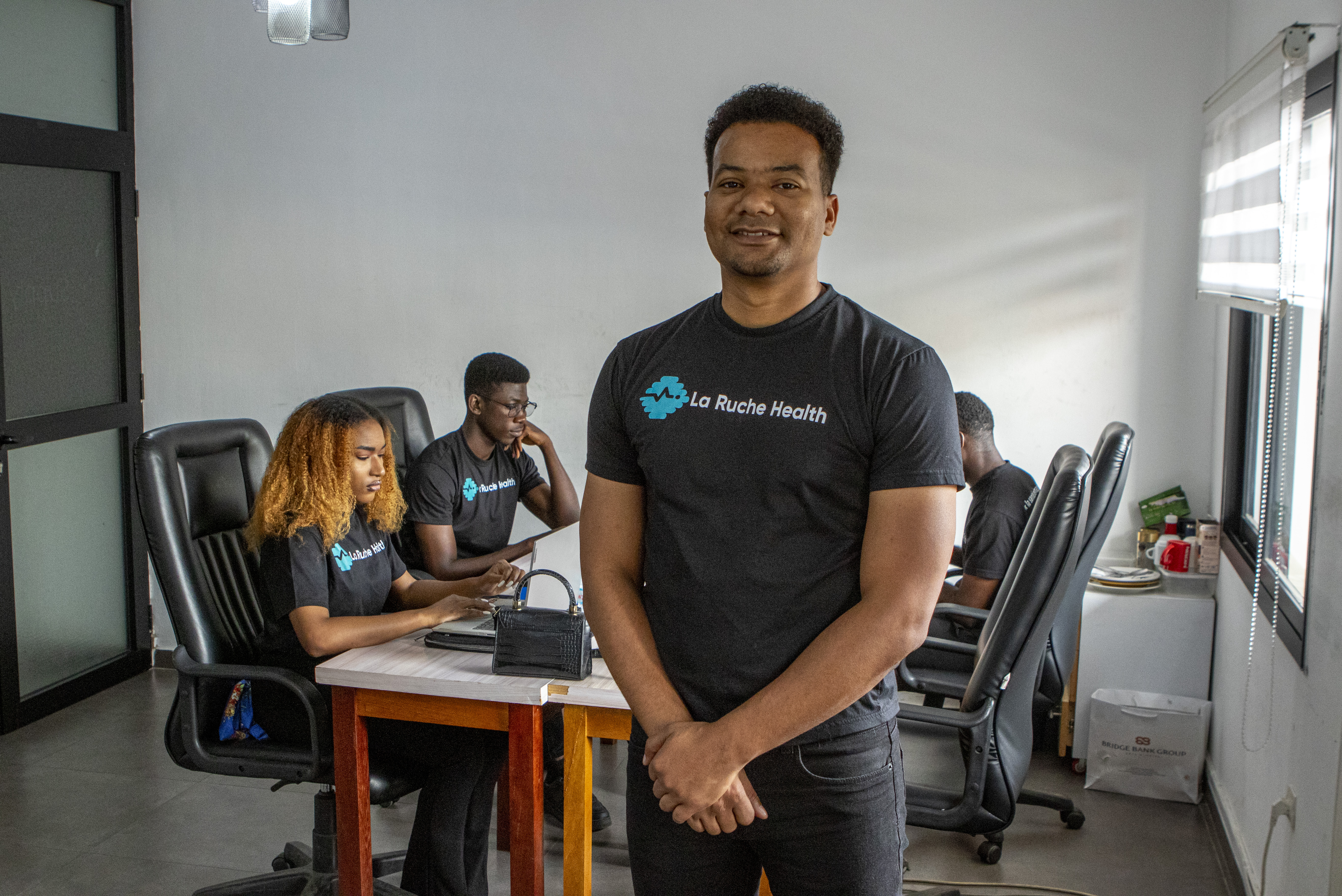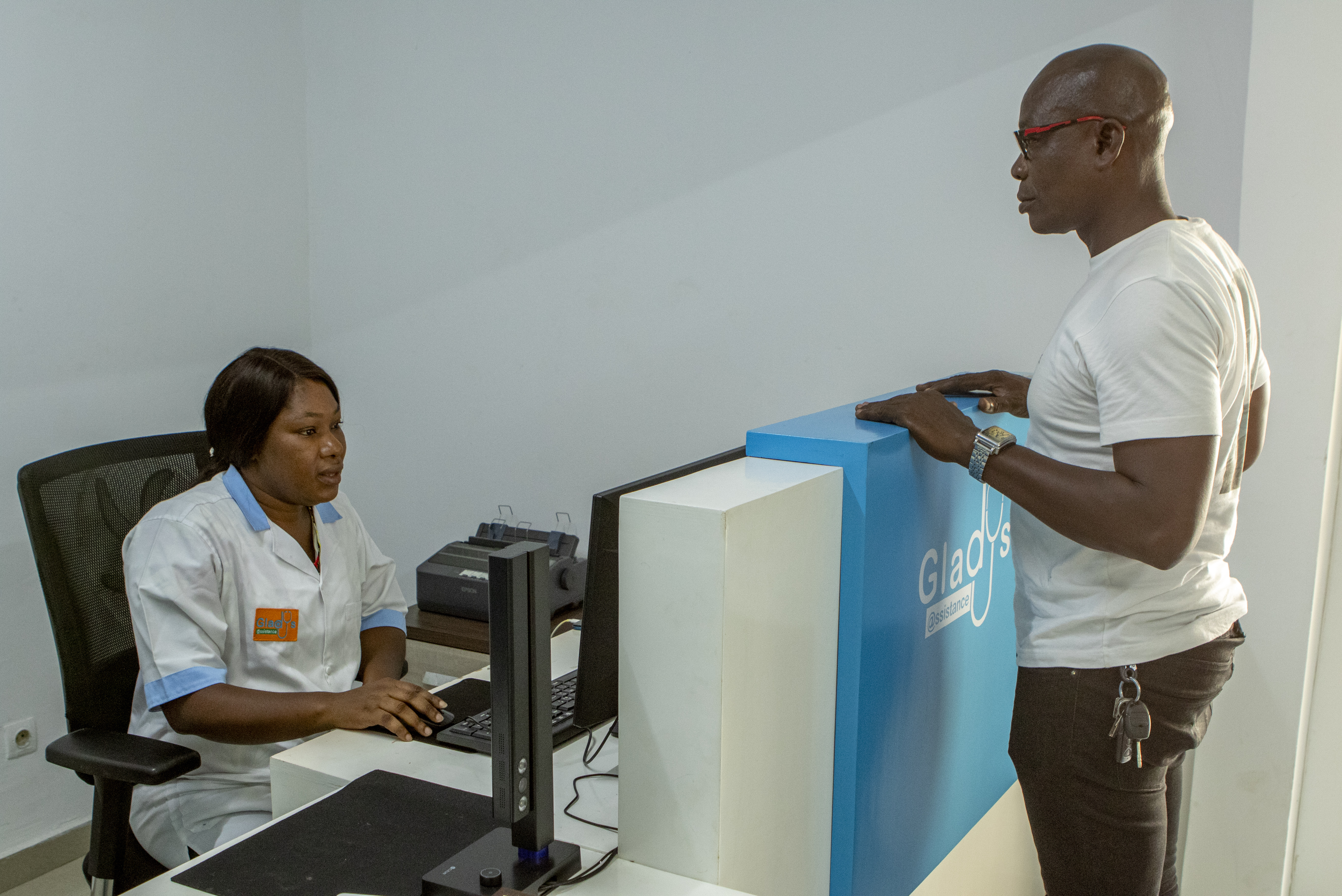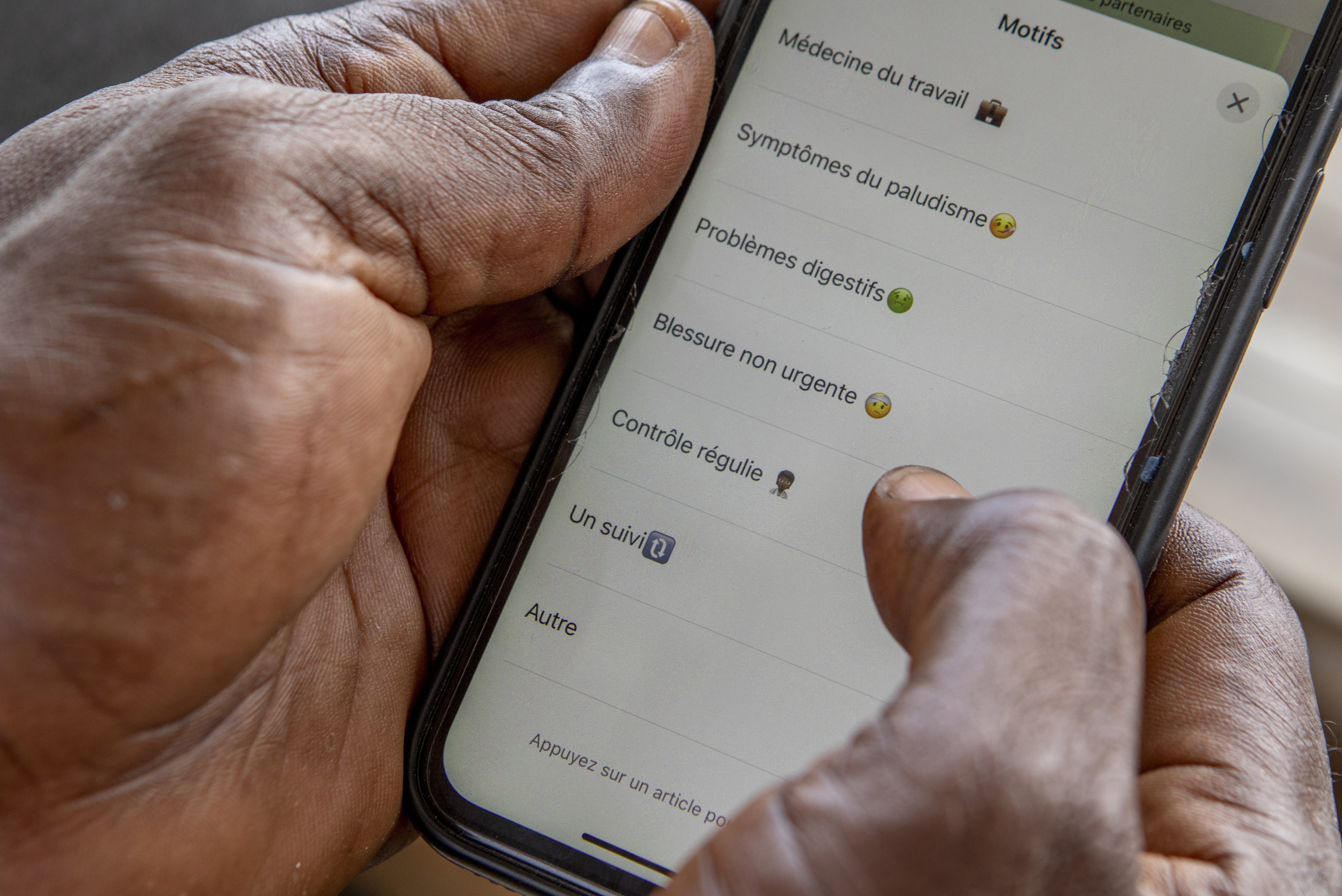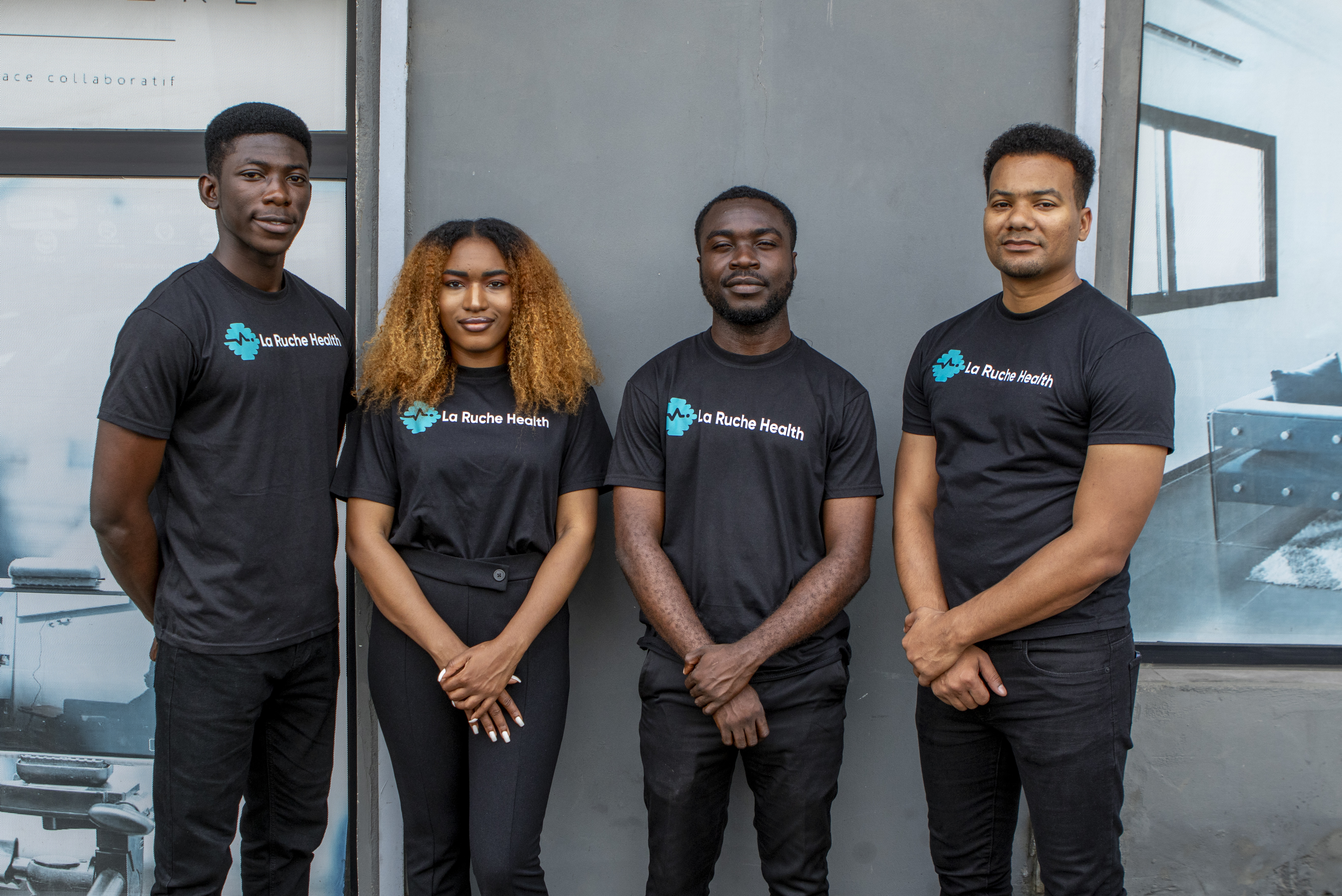The healthcare network in Côte d’Ivoire is fragmented and difficult to navigate, especially for 43% of the population with limited literacy skills. Every day, approximately 1 million patient interactions take place informally (in-home or via phone call), as a shortage of qualified medical professionals and facilities leads to unlicensed practitioners filling the gap.
Recognising this, Ivorian computer engineer Rory Assandey and his team developed a health-focused AI chatbot, Kiko, to navigate the fragmented healthcare system and introduce best practices in in-home and virtual healthcare practice.
Kiko serves as the patient’s initial point of contact, breaking down location and cost barriers. Patients interact with Kiko organically (through text, voice notes, and images) to receive personalised screening and promptly schedule appointments with qualified healthcare professionals. La Ruche Health's integration of AI with its EMR cloud-based app ensures seamless patient intake, automatically creating digital patient records by extracting data from the AI interaction.
Their pilot reached over 1,000 patients, achieving a 5% chat-to-appointment conversion rate, an 84% improvement in patient waiting times, and a 300% increase in clinicians’ daily capacity. By October 2023, over 5,399 users had utilised the health AI via WhatsApp, with 15 medical professionals using their EMR across five healthcare facilities. In January 2024, the team pivoted to focus solely on in-home and virtual care services. By May 2024, the AI has seen over 150,000 AI-led user interactions, and 189 in-home and teleconsultation appointment bookings, and processed over $18,000 in medical billings, showcasing its effectiveness and scalability.
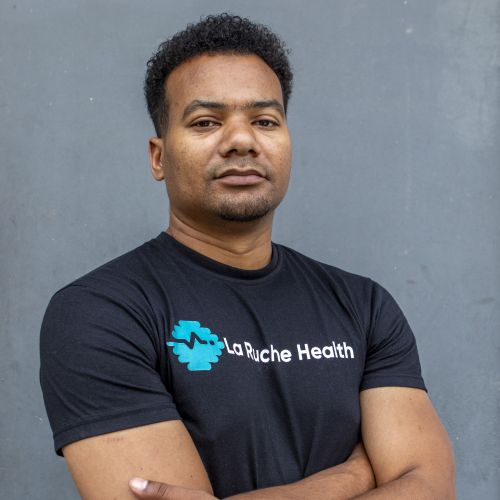
The key value we are offering is enabling the African population (60% under 25) to avoid self-diagnosis and medication via self-diagnosis. We are removing frustration and instead providing instant advice which is trustworthy, increasing the likelihood that patients will seek professional assistance.
Rory Assandey
